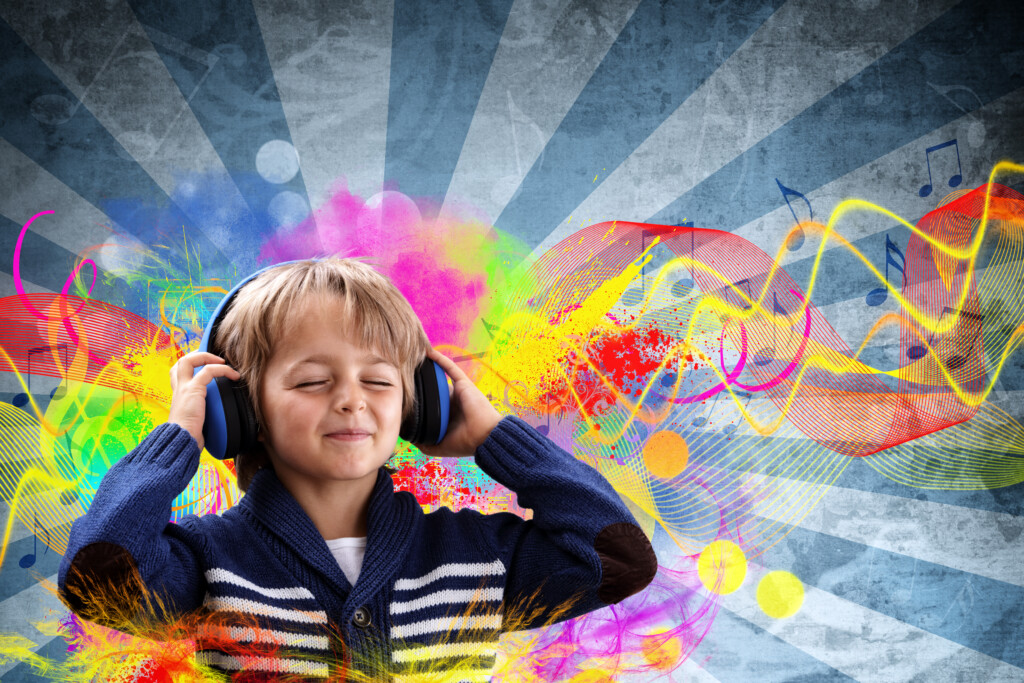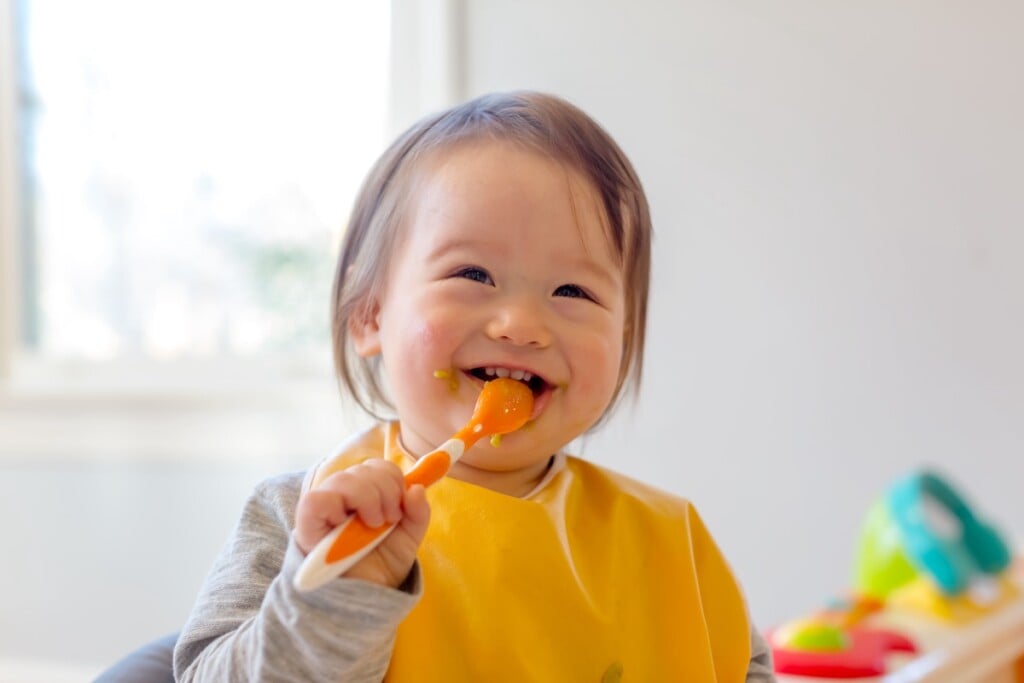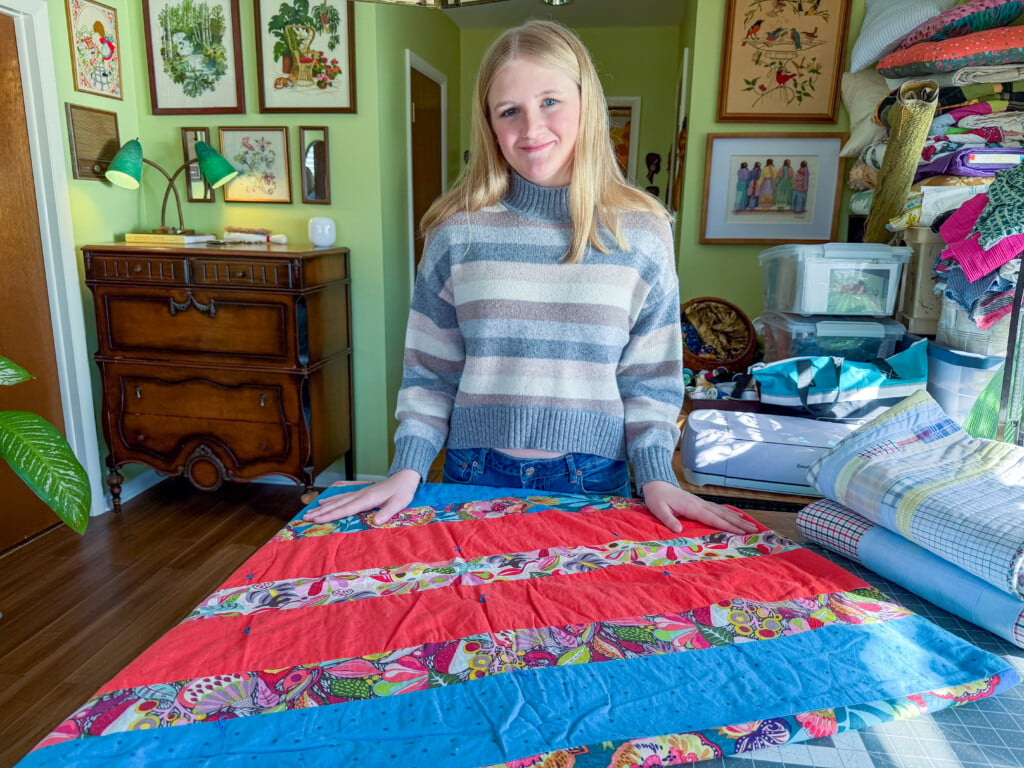The Power of Music

Baby Shark. Barney’s clean-up song. Daniel Tiger’s song about the steps for administering CPR (or maybe I’ve just made that one up). Once you’re in this parent game for any length of time, you’ve got two bars of some catchy little tune living rent-free in your brain. Those predictable notes and often silly phrases will never leave you nor forsake you (especially Baby Shark). If we inherently know the long-lasting impact of music upon our own minds, we certainly can see how important music can be for our children.
As an educator, I love to look at the mind of a child from multiple angles. Influences such as music, in all its versatility, hit so many areas of development and aspects of who we become. Let’s take a deep dive in. Watch out for (baby) sharks.
Music In Utero
Even in utero, humans begin to hear, process and take pleasure from sounds such as voices and music. Babies respond to their parents’ voices, settle in the presence of familiar sounds and have even been shown to prefer music experienced in the womb. My piano teacher once told me her mother composed a cello piece and played it throughout her pregnancy. Her son had a deep response to the song even into toddlerhood.
Those of us who lack the mastery of symphonic composition can always rely upon our own personal favorites. My youngest baby has a soft spot for the 2000s indie rock that helped her very nauseated mother during commutes to work. Another friend of mine made a special playlist of Reggae and Justin Timberlake albums, finding her anti-carseat baby was soothed by the deep and predictable beats. A predictable, deep beat, steady and almost tangible in its resonance? That sounds quite a bit like a maternal heartbeat, arguably a newborn’s favorite tune. You’re pretty much your baby’s Lennon/McCartney.
Smoothing Transitions
Also notable is the power of music to smooth transitions and cue children that it’s time to change gears. Many of us recall a particular ditty that was sung to us before bed or when we were scared. The tone of voice and familiar words signaled to our small, dysregulated bodies that someone was with us, that we were safe and told us what was coming next.
Educators know the power of music to help young children transition to the next activity. There are thousands of versions of clean up songs, but the earwig of my generation came from a purple dinosaur who loved to hug. Just a few notes into “Clean up! Clean up! Everybody, everywhere!” and, though no one is genuinely excited about it, small hands join big hands as materials are put away to prepare for something new. Music is a fabulous social cue that signals small brains that it’s time to dance, play, settle down or, perish the thought, pick up all those Duplos.
A Tool for Relaxation
Finally, music is powerful for children because it is powerful for their caregivers. When your favorite relaxation song comes on and you feel your body pause and fill with deeper breaths, you become a more grounded and peaceful adult. The little one at your ankles, likely begging for Baby Shark and casting crushed Goldfish crackers-turned-confetti all over the floor, sees this change in you. Involuntarily they mimic you. Breathe in. Breath out. Drop those shoulders. You both enter a more comfortable brain space and are far more capable of picking up the pieces (figurative or literal) together.
Fair warning: you’re still going to have to play Baby Shark for them at some point.
 Alicia Kobilnyk is an Early Childhood Educator who works with young toddlers. She finds joy and inspiration to write in their cheeky shenanigans, as well as those of her three daughters.
Alicia Kobilnyk is an Early Childhood Educator who works with young toddlers. She finds joy and inspiration to write in their cheeky shenanigans, as well as those of her three daughters.




